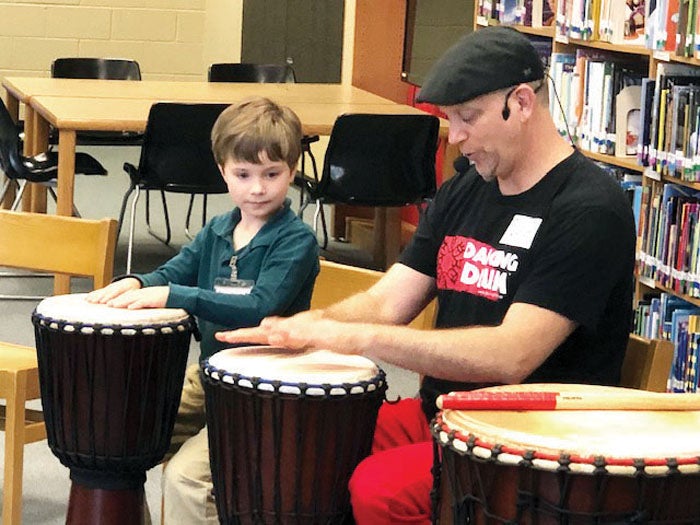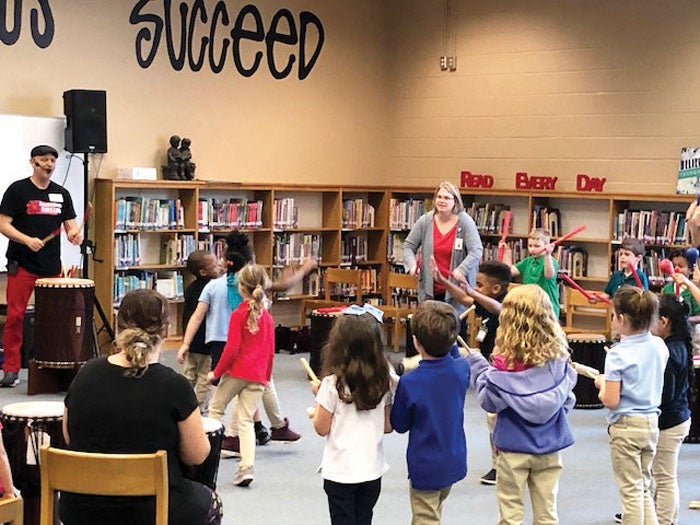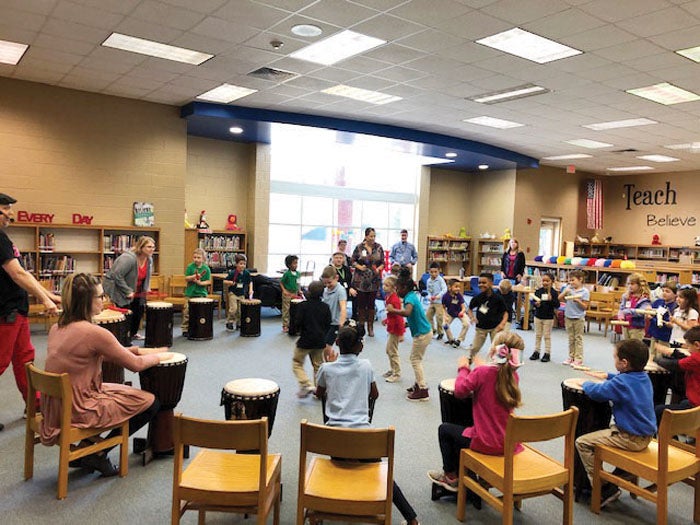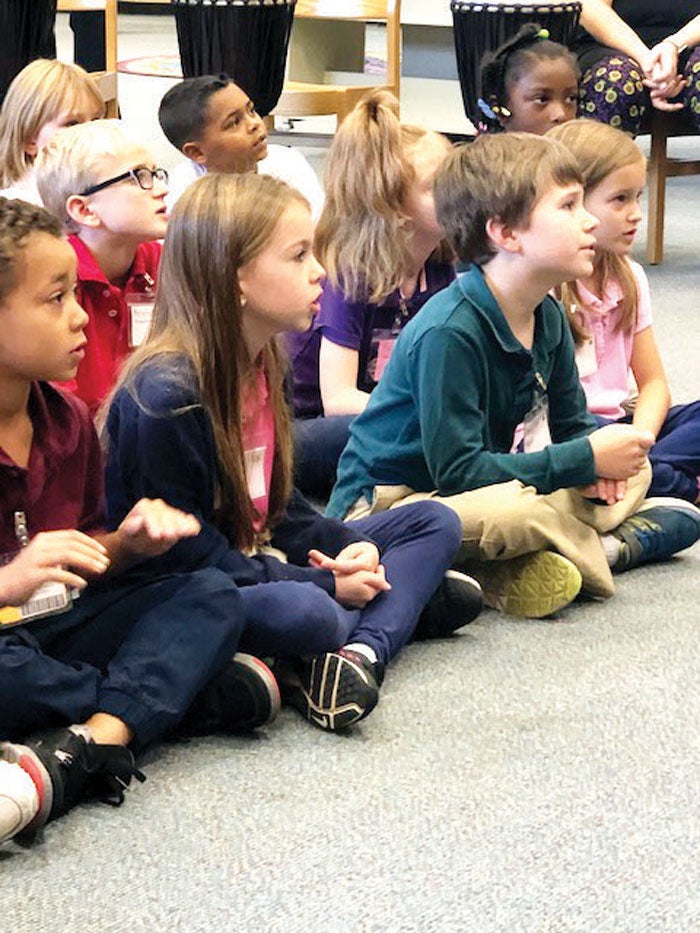The beat goes on: Granite Quarry students experience benefits of drumming
Published 12:00 am Thursday, November 7, 2019
By Maggie Blackwell
For the Salisbury Post
“Drums are a powerful tool,” says Dancing Drum owner Steve Campbell. “But they don’t do anything without the kids. That’s when the magic happens. You need the inspiration and magic of people playing together.”
Rowan-Salisbury School System has purchased the largest installation of drums in the nation from Dancing Drums, says lead elementary music teacher Jason Harwood. Each of the 17 elementary schools now has a set of 28 percussion instruments, including seven djembe drums, seven djundjun drums, seven maracas and seven wood blocks.
Because RSS elementary music teachers travel from school to school, it’s helpful to have a set at each one so they don’t have to pack them up in vehicles and move them.
Teachers attended professional development Tuesday to learn how to use them in instruction. Campbell worked with students at Granite Quarry Elementary School on Wednesday with music teachers observing as he modeled teaching through drums.
The purchase was initiated by now-retired Elementary Ed Director Kelly Feimster. Campbell says she saw him perform at a conference last November and reached out to him, citing the high numbers of high-risk students in the system.
Eden Sloop is a music teacher with the system. “Drumming helps incorporate literacy into instruction, and helps release aggression,” she says. “It benefits those with ADHD and those who do not. It activates both sides of the brain.”
The National Institute of Health has cited studies showing increased health as the result of drumming. After a 10-week drumming class, participants showed reduced depression and anxiety, as measured both by surveys of the individuals, and saliva samples measuring cortisol, a stress hormone.
Campbell agrees with the study. “You want kids to feel they can do it,” he said. “When you flip their consciousness to ‘I can do that,’ you are succeeding.”
He goes on to say he is going for participation rather than perfection. All kids want to be in the spotlight, he says, and even kids who struggle academically or socially will feel that they are a star.
“My job is to give them this spark,” he says.
Campbell created Dancing Drum with his wife, Lindsay Rust, in 2002. Together, they traveled to Africa and South America to learn their drumming cultures.
They had a child in 2015 and now Lindsey manages bookings and sales from home while he goes on the road to share the joy of drums.
He says being a parent broadened his understanding of how important it is for kids to feel important and have adult attention, for the parent to put his phone down for 15 minutes and be present with the child.
Campbell and Rust have written five books and those messages are incorporated into his presentation. One concept is developing character through drumming. Because it’s a communal activity, he says, it promotes teamwork and acceptance. He incorporates chants of, “take responsibility,” and “when we play together, it builds teamwork” into the rhythms he teaches.
The children certainly responded to Campbell and the drums. He spent 45 minutes with each class, progressing from clapping hands to patting laps to rapping drums, in simple rhythms, then more complex ones. He used repetition and praise to help the students along.
As Campbell demonstrated, all eyes were focused on him. The children were rapt in attention. When he asked for volunteers, they literally fell over themselves raising their hands.
Campbell trained to be a classroom teacher in college, but soon learned he was most effective when he used drums to help teach. Teachers observed as he managed students effortlessly while drumming.
“I’ve never had to exclude a child for behavior — or for anything,” he smiles. It’s a great, inclusive experience for students with special needs. Drumming is one of the most powerful tools to get a sense of togetherness.
“In drumming you can get everyone smiling or feeling accomplished in just the first few minutes. It gets kids engaged and builds the foundation.”








